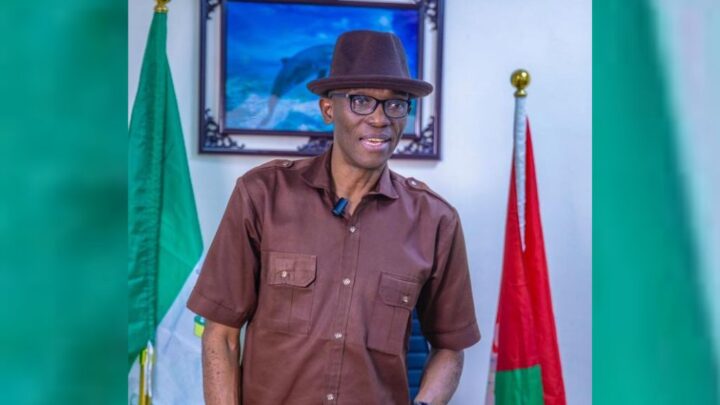ARTICLE AD

Minister of Education, Prof. Tahir Mamman
There has been a buzz about the decision, directive, or policy reportedly announced by the Minister of Education which restricts people less than 18 years from either writing the secondary school certificate examination or being admitted into tertiary schools, particularly universities.
From most of the discussions I have followed, I see two extreme positions here fighting for who is right and who is wrong with a limited analysis of the situation. There is nothing magical about age 16 or 18 because there are slight, individual differences as to when people mature, maturity or lack of it being central to this argument.
Each case can be taken on its merits. It is sad and I daresay callous to come in the middle of the educational process to stop children who have completed primary and secondary schools from entering the tertiary schools or writing the secondary school certificate examination on account of age.
A new policy like that, with all its assumed merits, should have commenced by ensuring the application of the minimum age rule to enter or exit primary school and gradually we will see children who graduate from secondary school at about 17 years of age. But that still shows that the 18-year rule reportedly proposed by the education minister is still arbitrary. Do we as a country have a minimum age for entry into secondary school and if so, what is it and how has it been implemented before this time?
For people in my generation who attended public schools, it was common to start primary school at age five and after six years of primary education, we were ready for secondary education from age 11. And because secondary school education then was five years, it meant that many completed secondary school in the year they turned 16, and a few of us only turned 15 after we had finished the examinations.
With the current six years of secondary education, that should place the secondary school leaver at about 17. The exceptions would be those children who skipped primary 6 and transited to the secondary school from primary 5. Such children would then be 16 in the year of completion of secondary school. We will need empirical evidence that a high majority of such under-18 children have been the problem in our educational system as a result of such early or speedy completion of primary and secondary schools.
This proposed policy acknowledges that there are many children aged between 15 and 17 who are in the final year of secondary education and intend to enter the university. If the plan is to stop them from writing the SSCE or being admitted into university, what adequate provisions are there to engage those children for the next two years before they are allowed to proceed with their academics? Such engagement is lacking or inadequate.
This is a classical case of putting the cart before the horse. It makes the whole thing look like the stoppage of petroleum subsidy and more than a year after we are still struggling with how to adequately cushion the effects of that.
If the 18-year rule is implemented right away, as it seems the minister wants to see, then we may end up with millions of children who have completed secondary school studies but are deliberately held down for one to three years before proceeding academically. And while waiting, there is little or nothing to engage them. Soon, we will be faced with another kind of malaise as these young ones may slip into all kinds of vices.
There is no doubt that many parents have pushed their children too hard and pressured them to accomplish much academically, without concern for their physical, mental, and physiological development and well-being. I have seen such parents brag about their children’s academic prowess too, after they made the children jump classes (double promotion) and write examinations earlier than they should.
The Joint Admissions and Matriculation Board is the body given the exclusive authority to process admission into universities, polytechnics, monotechnics and colleges of education in Nigeria. I don’t know what has changed but I know that in the 1980s into the 1990s, JAMB admission policies as stated in the JAMB brochures each year put the minimum age of admission at 16. It would seem that in our seeming lack of fidelity to the application of rules (what some of us refer to as ‘anyhowness’) many underage students may have sneaked into the universities, against the JAMB guidelines. But that is a failure of the state.
The failure started when the government willfully and irresponsibly abdicated its duty to implement free, compulsory, universal education but allowed private entrepreneurs to take over and drive that space. This is partly why any policy as to age was not strictly applied. So if we are going to get it right again we need to do that in a processed manner that does not leave thousands or millions of children in the lurch and open to more societal problems.
We can start by saying that from the next academic year, the government shall enforce the minimum age for entry into primary and secondary schools. However, a blanket implementation of such a rule cannot suffice. There should be room given for exceptionally brilliant children who may be geniuses, not to be caged by age. And this begs the question, whatever happened to the gifted children project and schools of yore which the Nigerian government operated?
Obo Effanga authored this piece
 2 months ago
8
2 months ago
8 

